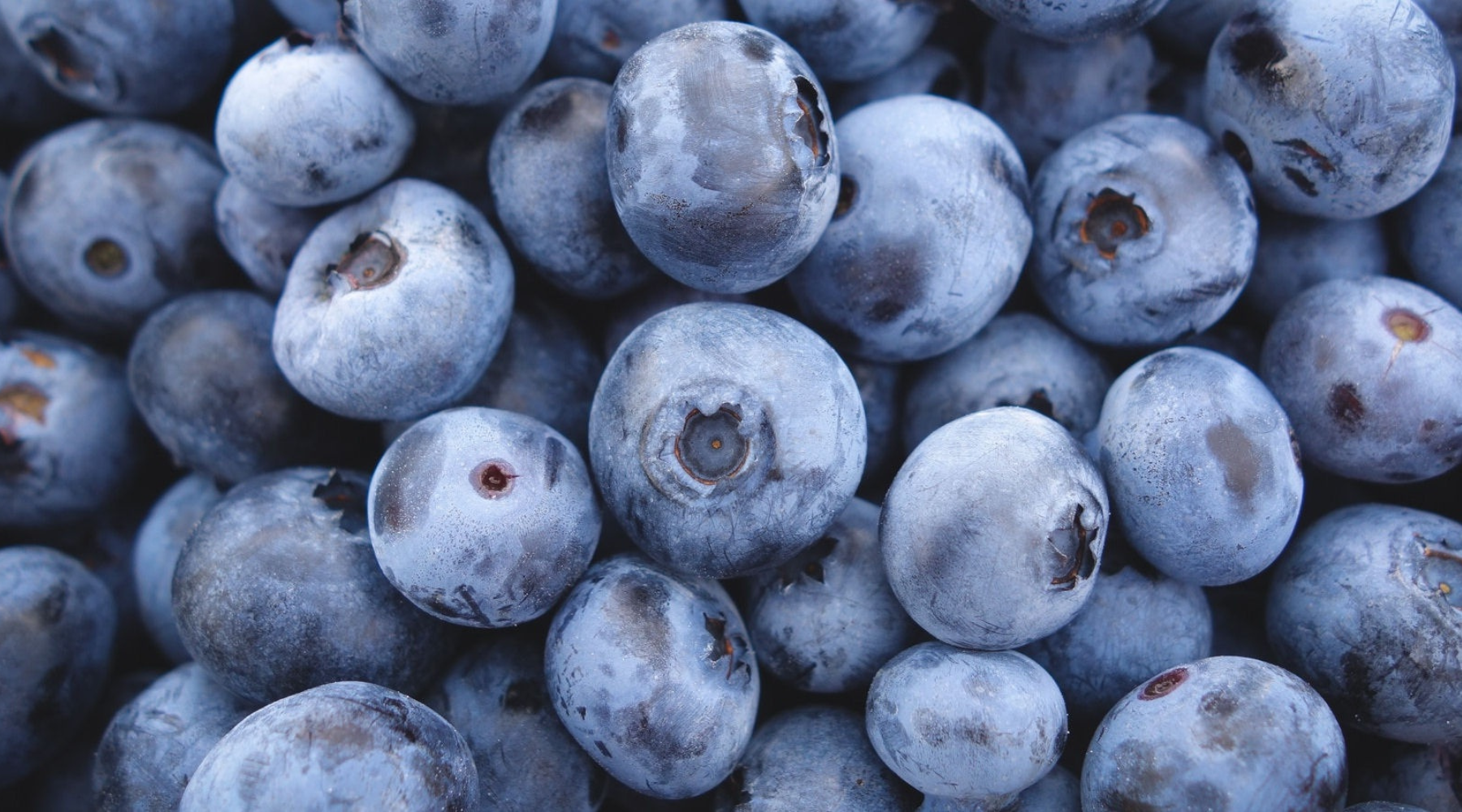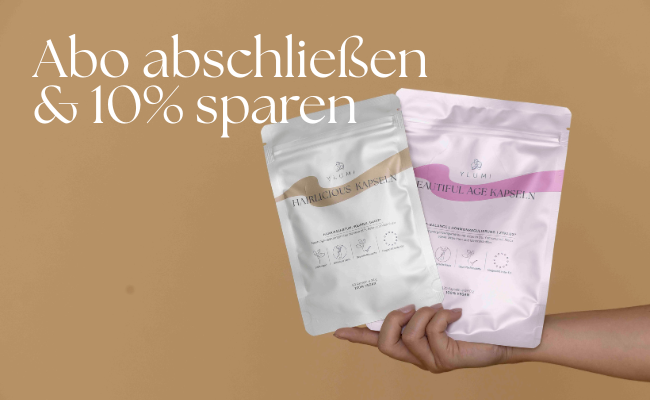
ANTI-INFLAMMATORY FOODS: NUTRITION FOR INFLAMMATION
Tired and constantly sick? One reason for this could be chronic inflammation. If you have what's known as a "silent inflammation" in your body, you can counteract it with a targeted diet, among other things. Certain foods, especially plant substances, can support your immune system and nervous system from within, so you'll soon feel fit and healthy again.
In this article, you will learn, among other things, how inflammation can arise, what the difference is between acute and chronic inflammation, and which foods you should include in your diet and which you should avoid in order to counteract inflammation in the body.
Contents
- How do inflammations arise?
- Acute inflammation
- Chronic inflammation
- Which foods can have an inflammatory effect?
- What are anti-inflammatory foods?
- Berries
- cabbage
- Citrus fruits
- Onions and garlic
- Nuts and seeds
- Carotene-containing fruits
- Legumes
- Fermented foods
- Cinnamon, turmeric and ginger
- Which nutrients and medicinal mushrooms combat inflammation?
- Which YLUMI products can help with inflammation?
- Sources
How do inflammations arise?
Inflammation is a defensive reaction of your immune system to pathogens or other invaders. A distinction is made between acute and chronic inflammation.
Acute inflammation
Acute inflammation is quickly visible and noticeable because it has a direct trigger. In the case of an insect bite, for example, the skin turns red and swells. This is good because it's a sign that your immune system is reacting immediately. It ensures that the affected area receives good blood flow and antibodies are produced so that the insect venom can be removed. The same thing happens, for example, if you have a splinter in your finger.
Chronic inflammation
Chronic inflammation has no direct trigger. This is why it is often referred to as silent inflammation. Furthermore, the symptoms are usually much less severe. If you experience symptoms such as fatigue, exhaustion, frequent illness, headaches, or gastrointestinal problems, chronic inflammation may be the cause.
Unfortunately, a diagnosis cannot be made based on these nonspecific symptoms alone. A blood test, for example, that examines the CRP level more closely can provide information. Below, we would like to briefly discuss a few forms of chronic diseases.
Rheumatic diseases
In rheumatic diseases, the immune system works at full speed to fight the unknown trigger. Your body reacts with inflammation in the joints, causing them to swell. To date, the causes of rheumatism are not fully understood. Researchers suspect that viruses or bacteria are possible triggers. However, an unhealthy diet and a deficiency in certain micronutrients can also influence the severity of attacks. [1, 2]
Intestinal diseases
The gut supports 80% of our immune system. Too much sugar, fast food, etc. (more on this below) affects our gut and can disrupt the balance of the intestinal flora. However, a balanced bacterial culture is essential for the gut to function properly. An imbalance in the intestinal flora can lead to chronic inflammatory bowel disease (IBD).
Skin diseases
Acne, rosacea, atopic dermatitis – many of these chronic skin diseases have their origins in the gut. They are therefore also influenced by what we feed our bodies every day.
Which foods can have an inflammatory effect?
It's advisable to eliminate foods that can cause inflammation from your diet as much as possible. Of course, you can make exceptions and even treat yourself to a cheat day. But if you want to put an end to silent inflammation, you should first take a look at your diet. The following foods have an inflammatory effect:
- Meat and sausages
- Dairy products
- white flour
- Finished products
- industrial sugar
What are anti-inflammatory foods?
In addition to eliminating inflammatory foods, you can also counteract chronic inflammation in the body with anti-inflammatory foods. Learn more about these below.
Berries
Raspberries, strawberries, blueberries, and the like – they all have antioxidant properties and are particularly low in sugar. They also help regulate blood sugar levels.
cabbage
Sulforaphane, a mustard oil found in cruciferous vegetables such as broccoli, cauliflower, and arugula, is said to have anti-cancer properties. [4] To benefit from its full anti-inflammatory effect, you should let the cabbage rest for 30 minutes after cutting it before processing it.
Citrus fruits
Oranges, lemons and grapefruits contain a lot of vitamins C and E – both of which are free radical scavengers and support the immune system in fighting off harmful substances.
Onions and garlic
Bulbous plants such as onions, garlic, and leeks contain allicin, a powerful antioxidant with anti-cancer properties. [5]
Nuts and seeds
In addition to magnesium, zinc, and selenium, nuts, seeds, and kernels (especially flaxseeds and walnuts) also contain omega-3 fatty acids, which have anti-inflammatory effects. [6]
Carotene-containing fruits
Carrots, sweet potatoes, mango, papaya, pumpkin, etc., all contain carotenoids. These not only have anti-inflammatory properties but also have a positive impact on bone health and protect cells. [7, 8, 9]
Legumes
In addition to protein and fiber, pulses also contain vitamins B1, B6, folic acid, iron, magnesium, and zinc. They are therefore packed with important nutrients and antioxidants that have anti-inflammatory properties.
Fermented foods
Fermented foods like sauerkraut or kimchi act as a balm for the gut. The lactic acid bacteria they contain support the intestinal flora and thus also our immune system.
Cinnamon, turmeric and ginger
Cinnamon, turmeric and ginger contain valuable essential oils that have anti-inflammatory properties.
Which nutrients and medicinal mushrooms combat inflammation?
To prevent inflammation and combat existing inflammation, you can also ensure you have an adequate intake of the following nutrients and medicinal mushrooms.
magnesium
Magnesium not only has a positive effect on our nerves, psyche, and muscles, but also has anti-inflammatory properties. Magnesium is contained, for example, in our SLEEP CAPSULES. or HAPPY MOOD CAPSULES . [10]
Vitamin C
Vitamin C is one of the most important antioxidants. It supports the immune system against infections. Natural vitamin C is contained in all YLUMI BEAUTY formulas.
Omega-3 fatty acids
Omega-3 fatty acids are converted by the body into the messenger substances eicosanoids and docosanoids, which have anti-inflammatory effects.
zinc
In addition to supporting the immune system, zinc also supports the skin. The zinc oxide it contains has antiseptic, anti-inflammatory properties.
Reishi
The medicinal mushroom Reishi, revered in Asia as a mushroom of immortality, is used to generally strengthen the immune system due to its minerals, vitamins, and bioactive substances. It is also believed to have anti-inflammatory properties.
Which YLUMI products can help with inflammation?
Our high-quality nutritional supplements are made from natural ingredients and contain phytochemicals, adaptogens, and essential vitamins and minerals. Our products are also 100% vegan, lactose- and gluten-free, and free from preservatives and colorings—made in Germany and Austria. The following formulas contain antioxidant active ingredients that can support you in inflammatory processes:
PURIFY
The PURIFY formula contains a combination of moringa, spirulina, ginseng, schisandra, Agaricus blazei Murill, dandelion root, turmeric, as well as vitamins B2, B3, B5, B6, B9, B12, biotin, vitamin C, and vitamin D3. For a strong immune and nervous system.
CLEAN
The carefully selected ingredients used in the CLEAN CAPSULES , such as Rhodiola Rosea, Moringa, Turmeric, Agaricus Blazei Murill, Chlorella and Milk Thistle as well as Vitamin C, Vitamin E, Vitamin B3 and Choline support liver health, fat metabolism and ensure more vitality.
2-PHASE SMOOTH SKIN SET
The 2-PHASE SMOOTH SKIN SET contains vitamin C, zinc, and reishi, among other ingredients. It nourishes the skin and improves its appearance – for a healthy glow.
Sources
[1] Adam, O: Linseed oil, fish, and more: Think about Omega-3 when you have rheumatism. In: Heilberufe/ Das Pflegemagazin; 2015, 67 (10), p. 16f. https://www.springerpflege.de/leinoel-fisch-co-bei-rheuma-an-omega-3-denken/10665052
[2] U. Becker: Countering Rheumatic Pain. Nutritional Therapy. In: UGB Forum 1/02 p. 42. https://www.ugb.de/ernaehrungsberatung/ernaehrung-bei-rheuma-schmerzen/druckansicht.pdf
[3] Muraki, I./ Imamura, F.: Fruit consumption and risk of type 2 diabetes: results from three prospective longitudinal cohort studies. BMJ, 347, p.5001. https://pubmed.ncbi.nlm.nih.gov/23990623/
[4] Wu, QJ/ Yang, Y. et al.: Cruciferous vegetable intake and the risk of colorectal cancer: a meta-analysis of observational studies. In: Ann Oncol, 24(4), 2013, pp.1079-1087. https://www.ncbi.nlm.nih.gov/pmc/articles/PMC3603442/
[5] Boivin, D./ Lamy, S.: et al.: Antiproliferative and antioxidant activities of common vegetables: A comparative study. In: Food Chem, 112 (2), pp.374-380. https://www.sciencedirect.com/science/article/abs/pii/S0308814608006419
[6] Zhi Yu/ Vasanti S Malik et al.: Associations between nut consumption and inflammatory biomarkers. In: The American Journal of Clinical Nutrition, Volume 104, Issue 3, September 2016, pp.722–728. https://doi.org/10.3945/ajcn.116.134205
[7] Sahni S./ Hannan MT et al.: Inverse association of carotenoid intakes with 4-y change in bone mineral density in elderly men and women: the Framingham Osteoporosis Study. In: Am J Clin Nutr, 89(1), 2009, pp.416-424. https://www.ncbi.nlm.nih.gov/pmc/articles/PMC3151434/
[8] Dhiman, K./ Gupta A. et al.: A review on the Medicinally important plants of the Family cucurbitaceae. In: Asian J. Clin. Nutr. 4, 2012, pp.16-26. https://www.researchgate.net/publication/269644382_A_Review_on_the_Medicinally_Important_Plants_of_the_Family_Cucurbitaceae
[9] Seo, JS/ Burri, BJ: Extraction and chromatography of carotenoids from pumpkin. In: J. Chromatogr. A 2005, 1073, pp.371-375. https://pubmed.ncbi.nlm.nih.gov/15909543/
[10] Simental-Mendía LE, et al., Effect of magnesium supplementation on plasma C-reactive protein concentrations: A systematic review and meta-analysis of randomized controlled trials, Curr Pharm Des. May 25, 2017. https://pubmed.ncbi.nlm.nih.gov/28545353/




